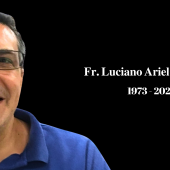Has Cebu replaced Manila as the center of Catholicism in the Philippines?
With three major ecclesiastical events tucked under its belt and another one coming up, Cebu City has become the new center of Catholicism in the Philippines.
Former Manila auxiliary bishop and Bishop Emeritus of the Diocese of Novaliches, Teodoro Bacani, Jr., made this comment during an interview on the sidelines of the National Retreat for Priests in Cebu City held last November 7-9.
According to Bacani, Manila used to host major church events, but recent developments show that “imperial” Manila can no longer lay claim to being the center of Catholicism in the Philippines. This is after Cebu has shown that it can successfully handle big national and international ecclesiastical events.
“A major shift has taken place,” Bacani said.
Cebu City hosted the 51st International Eucharistic Congress (IEC) in January 2016.
Five years later, the Archdiocese opened the national celebration of 500 Years of Christianity, a commemoration that lasted until 2022 owing to the COVID-19 pandemic.
The recently concluded national clergy retreat drew 2,500 priests, including 30 bishops, from more than 50 dioceses all over the country. Pressed to comment on the significance of this development, Bishop Bacani said it means that the faith of Cebuanos is "sumisigla" (becoming ardent).
He added that it was “daring” for Cebu Archbishop Jose S. Palma to host such a huge event.
For Cebu Archbishop Jose S. Palma, Bacani’s observations merely validate the penchant of the Cebuano faithful “to celebrate their faith."
Palma cited what the late Filipino Jesuit theologian Catalino Arevalo said regarding the 2016 51st IEC, which lasted for a week. The international event drew close to 18,000 national and international delegates. More than a million devotees participated in the concluding foot procession, a massive event in terms of logistical and security logistics.
According to Palma, who quoted the late theologian, "an explosion of faith" was what gave the international ecclesiastical event its energy.
About Cebu City’s perceived status as having replaced Manila as the center of faith, Palma declined to comment on the fervor of the faithful in the capital region, but he said the devotion there is focused on the Black Nazarene, while Cebuanos and Visayans are deeply devoted to the Holy Child Jesus, aka Señor Santo Niño.
He also credits the success of big ecclesiastical gatherings to the generosity and willingness of the laity in Cebu to help the archdiocese.
Asked if he feels “vindicated” by the success of the national clergy retreat after he was criticized for deciding that the NRP 2023 be held under the authority of the Cebu Archdiocese, Palma said the comments were just “apprehensions.”
He added that he never doubted that the local archdiocese would be able to handle the national clergy retreat because, according to him, “we never ran a deficit” whenever they handled ecclesiastical events.
As the NRP ended, a lay leader invited Sr. Briege McKenna, a popular Irish nun who ministered to the clergy during the retreat, to speak before the Asia-Oceania Apostolic Congress on Mercy (AACOM), slated for Cebu City in October 2024.
Through Bishop Ruperto Santos of Balanga, Bataan, Philippines, the World Apostolic Congress on Mercy (WACOM) Asia is organizing the Asia-Oceania Congress.
Radio Veritas Asia (RVA), a media platform of the Catholic Church, aims to share Christ. RVA started in 1969 as a continental Catholic radio station to serve Asian countries in their respective local language, thus earning the tag “the Voice of Asian Christianity.” Responding to the emerging context, RVA embraced media platforms to connect with the global Asian audience via its 21 language websites and various social media platforms.


















